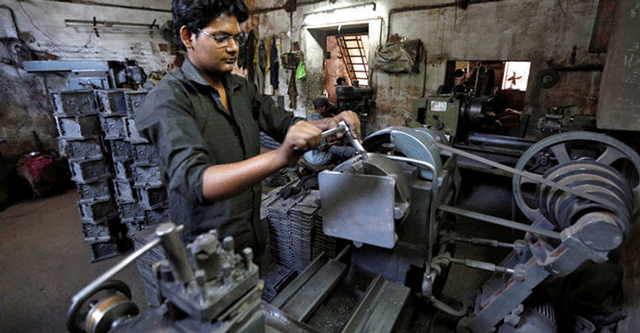
52% gig workers find it difficult to upskill, find new jobs: survey


Over 52% gig workers in a survey of over 4,000 individuals feel that their work environment makes it challenging to upskill or find new job opportunities.
The survey conducted by, CIIE.CO included 4,070 gig workers wedged between high-earning knowledge workers and daily-wage agricultural workers. It had approximately 120 questions and reached individuals from across five states.
Only 10% of the individuals were women.

The report said trends such as remote work can hypothetically be safer and more convenient for knowledge workers. However, in the specific category of platforms we explored, there were only 10% women. Of the 400 women surveyed, 60% provided services related to being house helps and earned relatively lower.
The report states that 50% of platform workers find their jobs through traditional referral networks despite 80% having internet access.
Of the 4,070 individuals, over 2,000 respondents were 30 years of age or younger. Powered by declining internet and hardware costs, technology-based platforms are becoming a lifeline for employment at a time when traditional sectors dwindle in size and reach.

Of the 3,581 individuals who shared data on their first jobs, 26% said to have started their careers as delivery boys, and 32% had started as drivers. From a skills perspective, even before their careers formally begin, platform workers in India are locked into the services they work for. The possibility of career progression diminishes as there are no avenues for skill development at the start of the career for young Indians.
Part of the reason why platform workers are likely to not choose to switch their jobs is the fact that they are the sole source of income for their families. Of the 3,827 individuals that shared information on how their families earned their income, 61% revealed that they were the only source of income for their family.
These apps are the sole source of income for those engaged by it. This creates excess reliance on how platforms rate them because a single poor rating could adversely affect the possibility of increased pay. Of the 4,070 individuals, 78% held less than two different jobs since 2015. A mere 172 individuals moved more than five times.

The report says there should acknowledgement of the importance of building and tracking a measure of well-being of gig workers, including physical, mental and financial well-being while proposing a decentralised platform that holds holistic data about gig workers.
The platform can be ‘managed’ by a data cooperative, the gig worker’s data is entirely owned by the respective individual. In this way, empowering the gig worker with owning and using their data, would improve her well-being, including job prospects and financial health, the report noted.
Only 1.4% of the total group reported income from investment in land or agriculture.

“In many ways, gig workers are channels through which the old and new India interact. We’re in 2022, it is about time that each of us has access to our data. Enabling gig workers to own and use their employment, finances, and health. data will improve their well-being and unlock the growth of both traditional and new economies,” Supriya Sharma, Partner - Insights, CIIE.CO said.
The report suggests, that to make the transition toward a $5 trillion economy, India needs to embrace the tools of the future, including open-distributed ledgers (blockchains), big data, and data streams between entities.
CIIE.CO, through its Bharat Inclusion Initiative, has backed startups working in areas such as financial inclusion, livelihood, skilling, and health. Through the Initiative, CIIE.CO said it has accelerated over 52 startups.

